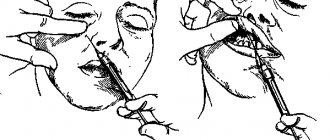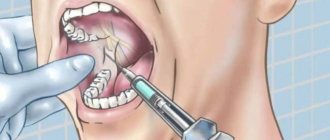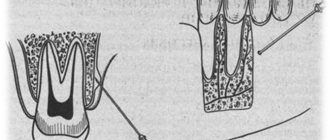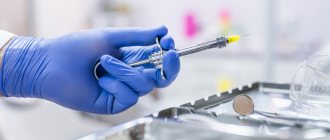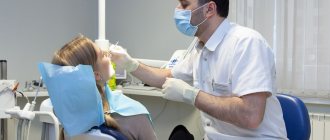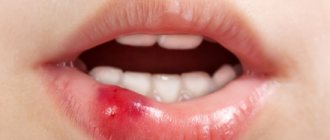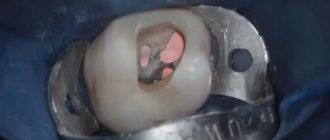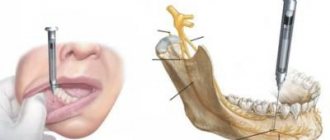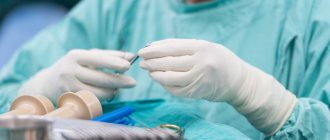general description
Anesthesia is administered using a special syringe, after which the sensitivity of the nerve endings of the tooth is reduced. The capsule is called carpool. The procedure for administering the medicine itself follows a standard procedure.
The carpule syringe is designed for reusable use. It is made of medical metal, and the structure includes a frame, a piston part and a needle. The piston is equipped with a gap to accommodate the capsule. The latter is a special ampoule containing an anesthetic.
The ampoule is sealed in a sealed package, which ensures the safety of properties and compliance with sanitary standards.
Where to buy quality syringes?
The carpule syringe is a popular tool in dentistry. You can purchase quality products from time-tested sellers. If a company has been on the market for 3 years or more, then this indicates an already established reputation that can be verified.
You can buy medical instruments in the following places:
- in stores selling medical equipment;
- on the Internet on relevant trading platforms;
- in large pharmacy chains.
Flaws
Dentists note the usefulness and convenience of using carpule anesthesia. Among the disadvantages is the high cost. Some patients cannot afford pain relief with a carpule. But doctors justify the cost, because the complexity of manufacturing and efficiency in use entail considerable costs.
Dentists refuse carpule anesthesia in cases where it is necessary to add a vasoconstrictor to the composition. This type of pain relief does not provide such an opportunity.
Contraindications for local anesthesia
Local infiltration anesthesia is a relatively safe method of pain relief. But to reduce risks during and after surgery, it is necessary to take into account contraindications to the use of the method. The main ones are the following:
- allergy to anesthetic - if earlier during dental treatment under local anesthesia an allergy to an anesthetic appeared, then during breast surgery the effect will repeat, and may be more pronounced, up to anaphylactic shock;
- psychomotor agitation and mental illness, reaction to the administration of an anesthetic and the surgical procedure itself can cause unpredictable behavior of the patient;
- during operations on malignant tumors - when infiltration anesthesia does not allow compliance with the ablastic rule;
- during long operations that require the use of microsurgical equipment;
- during interventions on areas of the body with a pronounced vascular network, for example, on the neck.
If local anesthesia is contraindicated, general anesthesia is preferred.
Requirements for drugs
Modern anesthesia solutions have certain requirements:
- Minimal risk of toxic and allergenic effects on the patient’s body;
- No risk of nerve and tissue damage;
- The most minimal manifestation of side effects and consequences;
- Rapid elimination from the body;
- Rapid manifestation of the analgesic effect;
- Complete anesthesia of all tissues at the injection site;
- Should not cause vasodilation;
- Duration of action for the entire period of treatment;
- Rapid cessation of action at the end of treatment;
- Providing all analgesic properties during storage.
Compliance with all these requirements allows you to achieve the desired result of pain relief and not cause negative consequences in the patient’s body.
Injector contents
Each doctor studies the composition of drugs used for anesthesia. The packaging of the medicine indicates the percentage content of the elements included in the drug. Each element plays an important role in the drug.
Main components of the injector:
- Anesthetic. The main part of the drug that reduces sensitivity. Most often these are Lidocaine, Prilocaine, Articaine.
- Vasoconstrictor – vasoconstrictor (adrenaline, mezaton). Necessary to enhance the effect of the anesthetic. But it is contraindicated for people with heart problems, diabetes, and the elderly.
- Antioxidants (sulfites and bisulfites). They protect the vasoconstrictor from destruction when exposed to oxygen. Due to the sulfur content they can cause allergies and intolerances. Not used for patients suffering from diseases of the respiratory system.
- Preservatives. Responsible for the safety of the drug until use.
- EDTA is a metal-binding element.
- Parabens. Maintain the sterility of the drug.
Before the anesthesia procedure, the doctor must make sure that the patient does not have a negative reaction to the elements included in the drug, otherwise there will be serious consequences for the person’s health and life.
Storage rules and periods
In order not to violate the shelf life of the drug, it is necessary to strictly follow several rules for storing capsules:
- Store in a dark place.
- Temperature range – 23-25 degrees.
- Inaccessibility to children and animals.
It is strictly prohibited to use capsules stored incorrectly.
The unsuitability of the drug can be determined by its appearance. Main features:
- Violation of the integrity of the packaging.
- Presence of sediment.
- Color change.
- The appearance of bubbles.
- Rust on the ampoule.
Requirements for drugs
Each product used for pain relief must meet the basic requirements of the dentist.
The first priority, of course, is patient safety. The medicine should not cause allergies, contain toxins, or have serious side effects.
Secondly, the doctor must be sure that the duration of exposure to the drug is sufficient to carry out the intended therapeutic actions.
Popular means
For carpule anesthesia in dentistry, drugs from French manufacturers are more often used, which meet quality characteristics and are affordable.
The most common:
- Ultracaine. It acts within a minimum period of time (1-2 minutes) after administration.
- Ubistezin. The action lasts 25-30 minutes. Suitable for children and pregnant women.
- Scandonest. Includes a large amount of adrenaline. Provides minimal bleeding.
- Septanest. Works for 15-20 minutes. More often used for people with health problems.
Reasons for the lack of pain relief
It often happens that after the administration of anesthesia, sensitivity in the area of the upcoming treatment is retained completely or partially. One of the reasons is poor quality of the drug. But there are other reasons:
- Fear that blocks reflexes.
- The production of adrenaline, which neutralizes the effect of the drug.
- Alcohol addiction.
- Accustoming the body to the drug.
Treatment technologies are developing, new developments are being created to improve the quality of dental services.
Carpule anesthesia is used in every dental clinic. Anesthesia helps make the treatment more comfortable and also reduces the patient's fear of the upcoming procedure.
Price
The cost of carpule syringes depends on the material of manufacture, ease of use, method of aspiration, and whether additional clamp tips are included in the package. Models of products from various manufacturers with prices are summarized in a table.
| Name/manufacturer | price, rub. |
| Single use injector / ARTIJECT (Spain) | 30-50 |
| Iron carpule syringe with three rings / ARTIJECT (Spain) | 560-600 |
| Carpule syringe made of titanium / HLW Dental Instruments (Germany) | 5900 |
| Carpule syringe made of stainless steel, without aspiration, straight handle / Anthogyr (France) | 5900-6900 |
| Stainless steel carpule syringe, manual aspiration, ring-shaped handle / Anthogyr (France) | 6050-6900 |
| Carpule syringe made of brass with nickel and chrome anti-corrosion coating / Cornerstone Corporation (Pakistan) | 450-500 |
| Carpule syringe with 2 rings, manual aspiration, chrome plated / Asa Dental (Italy) | 2300-2400 |
| Carpule syringe with 1 ring and 1 half ring, manual aspiration, chrome plated/ Asa Dental (Italy) | 2000-2200 |
| Carpule syringe made of light alloy with anti-corrosion coating with a window to control aspiration / MEDENTA (Pakistan) | 730-750 |
| Dental metal injector with 3 rings, spear-shaped tip / Surgicon Pvt LTD (Pakistan) | 400-500 |
Experts note the ease of use of carpule syringes. In dentistry, the device has gained popularity due to its safety and comfort of use, eliminating the possibility of infection. There are injectors on the market of varying prices, with characteristics that can satisfy any need.
Selection of carpule needles
The carpule needle consists of a metal nozzle and a plastic coupling, with the help of which the spear is attached to the body. The product must guarantee effortless, painless injection of the medicinal substance.
It has 2 sides, with the help of which manipulations become harmless. The elongated side of the tip is used to penetrate dental tissues; it ends with a chamfer. The short side is a device for opening impenetrable carpules.
The criteria for selecting a device should be based on the following characteristics:
- Dentists recommend choosing a product that has a red mark indicating the direction of movement of the syringe. This can increase the level of medical manipulations and reduce the time a person spends in the dental chair.
- The metal for the manufacture of products is selected according to the parameters of thickness, reliability, and increased elasticity. This will help avoid infection and eliminate discomfort during the procedure, providing opportunities to reach the most inaccessible places in the oral cavity.
- Needles are selected according to length. There are products on sale with lengths from 10 to 25.5 mm (short) and 28.9-41.5 mm (long).
- Dentists also select needles based on diameter.
Foreign-made needles are more expensive; they are certified to European and American standards. The most expensive products include products from the company Septoject Evolution (a package of 100 pieces can cost 1000-1400 rubles), made from high quality metal.
Products made in Korea and Pakistan are much cheaper (300-500 rubles), which are also of good quality (brands NI-PRO, BIODENT, Sun Pharmaceuticals, Cornerstone Corporation). The cheapest needles will cost you Russian-made needles (AERS), which are not inferior in quality to their foreign counterparts.
All manufacturing companies produce products according to standard parameters of diameter and length: 12, 16, 21, 25, 30, 35, 38 mm.
Popular means
Most often, drugs based on articaine are used for pain relief in dental treatment. It is the most modern effective substance.
Its anesthetic effect is several times greater than lidocaine and novocaine. In addition, articaine retains its analgesic properties even during inflammatory processes, which lidocaine and novocaine cannot do.
The most popular drugs based on articaine are:
- Ultracaine is produced in France. It has three variations depending on the content of epinephrine and its concentration - Ultracain D without additives, Ultracain DS with a concentration of 1:200,000 and Ultracain DS forte with a concentration of 1:100,000;
- Ubistezin is produced in Germany. Its composition is similar to Ultracain and has two variations - Ubistezin with the addition of epinephrine in a ratio of 1:200,000 and Ubistezin forte 1:100,000;
- Scandonest is made in France and is produced.
It contains no preservatives or vasoconstrictor components. The basis of the solution is Mepivacaine. This drug is used only if anesthesia with adrenaline and norepinephrine is contraindicated. - Septanest has been used for a long time. It also has two release options depending on the concentration of adrenaline - 1:100,000 and 1:200,000. The difference is the presence of preservatives in the composition, which can cause an allergic reaction.
All anesthetics are effective. A prerequisite for the pain relief procedure is an allergic reaction test.
